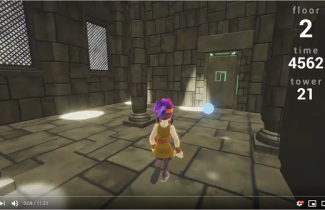The University of Eastern Finland has participated in NASA’s Epic Challenge programme for three years already. Working together with experts from the Joensuu region and NASA, students seek ways to tackle the challenge of sustaining human life on Mars. This week, Astronaut Charles Camarda is visiting Joensuu to lecture in the Epic Challenge kick-off week.
“This is the third year of our Epic Challenge programme, and we now have more than 80 students from the local educational institutions – ranging from university to high school – participating,” says Project Manager and Epic Challenge teacher Ana Gebejes from the University of Eastern Finland School of Computing.
“Anyone can join the programme. The idea is to solve different challenges in teams, and these teams are formed of students representing different educational levels. The course is organised four times a year. We use a digital learning environment that has been developed by Arcusys, as well as NASA’s innovation methods.”
In addition to problem-solving, the teams learn collaboration skills and skills needed in project-based work. They also learn about testing, creative methods and networking. The problems the teams are trying to solve do not have a single correct solution; instead, the idea is to find the best alternative.
In the previous years, Epic Challenge has focused on the communication delay between the Earth and Mars, as well as on the use of augmented reality in astronauts’ protective goggles. In last year’s SciFest science festival, on the other hand, an escape room for astronauts was created, with problem-solving skills providing a way out.
“One of the teams studied how to make the space suit dust-free; in other words, how to remove Martian dust from the suit’s surface and prevent it from entering a Mars habitat. First, the team tested a gel that is used to, for example, to clean keyboards. However, they then found a better solution that relies on electricity,” Gebejes describes.
“I’m impressed by the fact that our students can do similar things as highly trained space engineers. Of course, it’s a good idea to test the different alternatives at the grass-roots level first. This also provides additional insight into the actual problem.”
Astronaut Camarda kicks off a new course
This year, an increasing number of companies have been invited to join the project, and companies may also bring their own problems for the teams to solve.
“We seek to facilitate increasingly close collaboration between companies and students, and to carry out RDI activities. We are keen to promote student entrepreneurship,” says Epic Challenge Project Coordinator Jesse Korhonen, who himself has been a student on the course.
“The teams are now working on challenges relating to Mars habitats, for example, how to save energy. In this theme, we are collaborating with the student housing company Joensuun Elli,” Gebejes says.
“At the moment, we have a large number of physiotherapy students on the course, and they are studying how to offer physical therapy via remote solutions to elderly people living in rural areas here on Earth, as well as to astronauts on Mars,” Korhonen says.
The course also looks at various technological solutions, for example, how to use drones to take video of the surface of Mars, and what kinds of materials could work in the challenging conditions.
The theme of research of the Astropod team is the production of food and water in Mars habitats. For instance, the international team is currently designing a bioreactor in which the decomposition process could be accelerated with the help of different enzymes.
The team comprises five members from the University of Eastern Finland and Karelia University of Applied Sciences.
“Bioreactors – or composts – are also an interesting theme of research, but for the time being, NASA doesn’t use them in space,” says Yoko Lu, who studies in the MSc Environmental Biology programme at the University of Eastern Finland.
Previously, Lu has studied environmental science, forest sciences and business management in Canada.
The team of Tsultim Tamang, a student of international business originally from Tibet, first focused on the development of "an astrofarm", which refers to complete self-sufficiency when it comes to food and water on Mars.
At the moment, his main interest lies in the condition and fertilisation of arable land, as it is not very easy to send fertilizers to Mars.
Both the students joined the programme because they wanted to challenge themselves in a new way.
“I was surprised at my own motivation, as I don’t have a background in science,” Tamang says.
“Nevertheless, I want to accomplish something that can be genuinely utilised in the future not only in Mars but here on Earth as well. For example, odourless bioreactors could be used in large cities.”
The next Epic Challenge course will start this week, featuring lectures by Astronaut Charles Camarda from NASA, among others. On Friday, Dr Camarda will give a public lecture on his experiences of being an astronaut.
“In the future, we seek to expand the programme to include all of the faculties of the university. We also want to improve digital learning environments and enhance the related skills of our students,” Gebejes says.
For more information, please see:
Epic Challenge Joensuu http://www.epicchallengejoensuu.com/
Astropod https://astropodnasa.wordpress.com/
In the photo: STS097-375-029 (5 December 2000) --- Astronaut Carlos I. Noriega, STS-97 mission specialist, works on the U.S.-built Unity node during the second of the flights, three space walks on the International Space Station (ISS). https://images.nasa.gov



